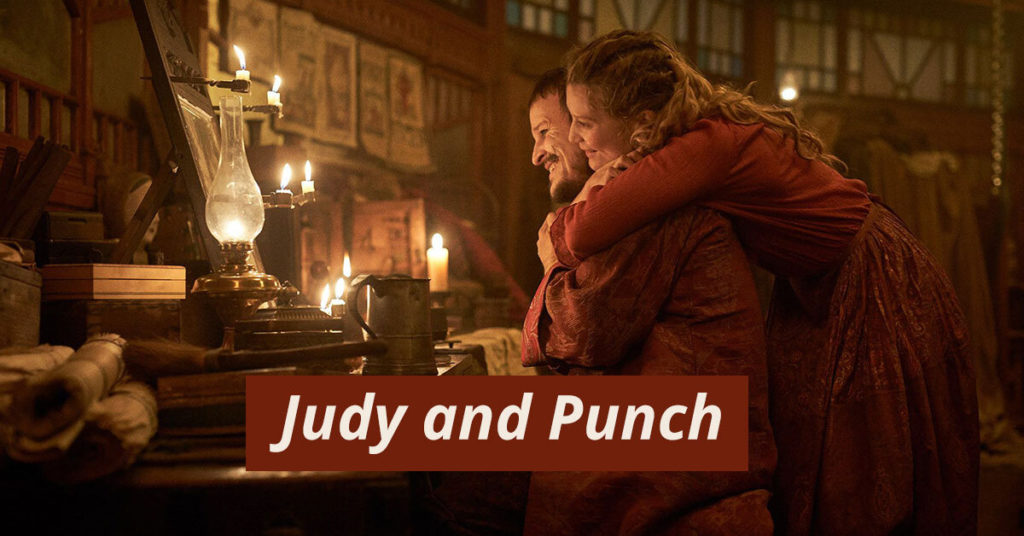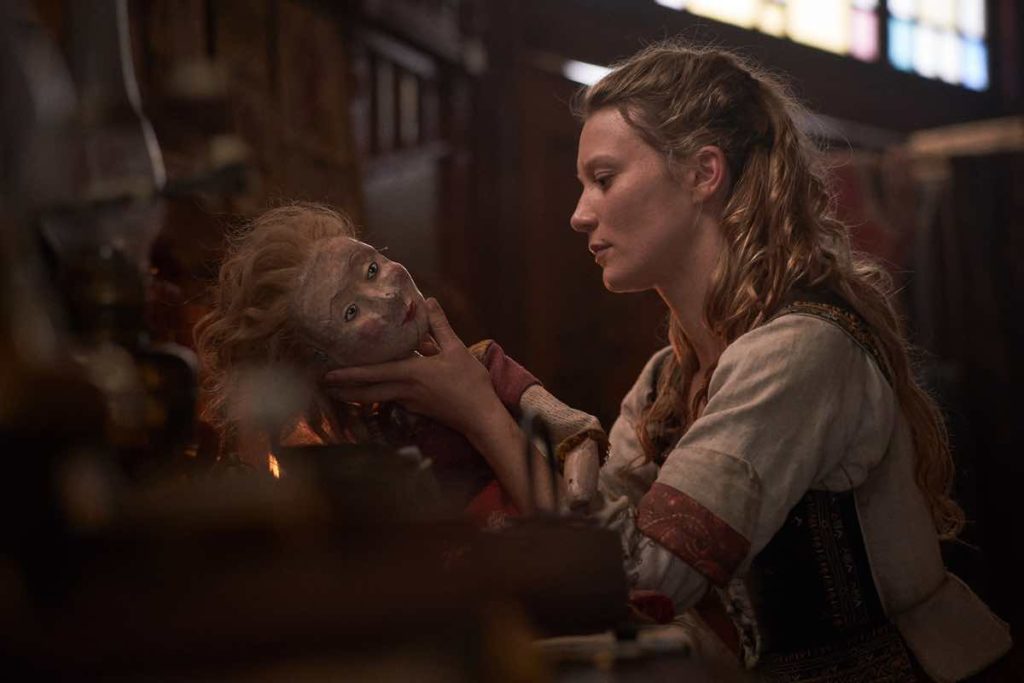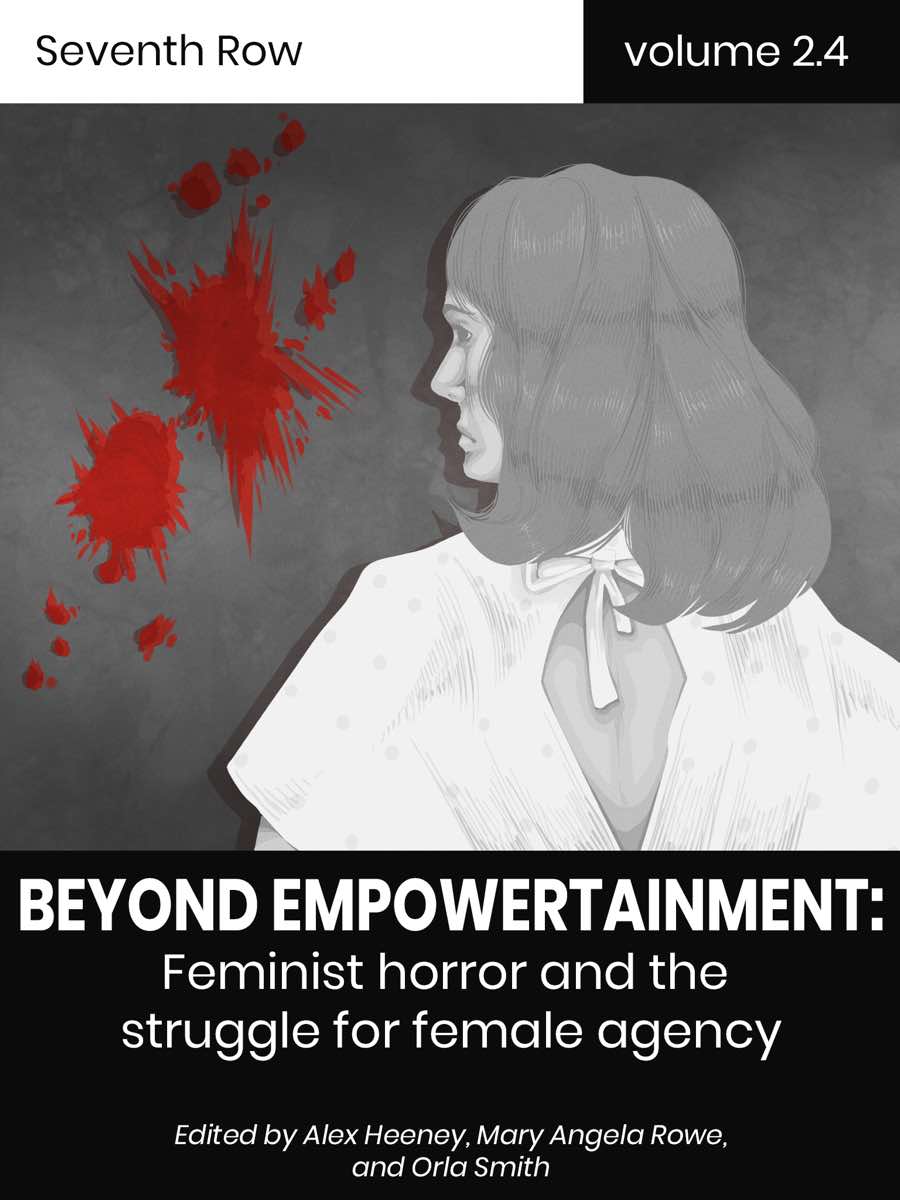In Judy and Punch, Mirrah Foulkes wrangles with the legacy of a beloved British cultural institution, offering a revisionist, feminist take on the origins of the Punch and Judy puppet show. The film is now on VOD in Canada, the US, and the UK.

In theory, the traditional British puppet show Punch and Judy provides fertile ground for the kind of feminist revisionism that Australian actor Mirrah Foulkes is trying to pull off in her directorial debut. The star of the archetypal puppet show is Punch, a grotesque ne’er-do-well who, after failing spectacularly to safely babysit his child, goes on to cheekily avoid comeuppance by beating every adversary he meets with a stick, including his wife, Judy. In Judy and Punch, Foulkes imagines that Punch (Damon Herriman) and Judy (Mia Wasikowska) are married puppeteers in seventeenth-century England who perform their puppet show (a sort of prototype version of what we now recognise as Punch and Judy) to boisterous crowds in the small town of ‘Seaside.’ As indicated by the film’s title, Foulkes adopts a reversed perspective that foregrounds the talented artist Judy as the protagonist, rather than her abusive, drunken husband.
Charles Dickens once said of Punch and Judy that it “would lose its hold upon the people if it were made moral and instructive,” and that he “regard[s] it as quite harmless and as an outrageous joke which no one in existence would think of regarding as an incentive to any kind of action or as a model for any kind of conduct.” The fundamental problem with Judy and Punch is that it can’t decide whether or not it agrees with this statement.

On one hand, Judy and Punch offers a rebuttal to the notion that art doesn’t influence behaviour by hinting that the puppet show functions to reinforce the town’s patriarchal structures. At the beginning of the film, a scene depicting crowds cheering on the puppet Punch during his violent antics is followed by another in which the same townsfolk gather for a stoning of women accused (for a variety of preposterous reasons) of witchcraft. We’re invited to consider how these two violent spectacles are similarly gratuitously enjoyed. In the former, it’s Punch who encourages them by proclaiming “That’s the way to do it!” as his puppet strikes another during the performance, and in the latter it’s by a braying authority figure who calls on the crowd to throw stones.
Punch even finds the mock-violence of the show he performs leaking into his own, real life when he repeats his catchphrase “That’s the way to do it!” after viciously beating Judy one night. The positive reinforcement of the violence in his show through the crowd’s cheering has, in his mind, legitimised actual violence towards his wife.

However, while these ideas in the film amount to, to return to Dickins’ words, a film that strives to be “moral and instructive,” they are undermined by moments of cartoonish humour that feel more like an “outrageous joke.” For instance, the aforementioned depiction of domestic abuse is brutal and difficult to watch, and is clearly intended to elicit a shocked, distressed response from the viewer through Judy’s anguished cries of pain and the harrowing synth score that accompanies it. The actual beating might be kept off-screen, but the accompanying sounds reveal its brutality and allow our imagination to run wild with the gory details.
This contrasts starkly from the scene that precedes it, in which Punch, chasing after a small dog, slips and accidentally hurls his infant son out of the window, prompting a cut to a long shot where we look on as the baby flies on its merry way. Here, the physical pratfalls and frivolous circumstances (he’s chasing the dog who has stolen some sausages) suggest that this scene is intended as humorous, and indeed it might well have been in isolation. But taken together, both scenes clash tonally, with the latter’s humour trivialising the former’s seriousness, and giving mixed messages as to whether the film wants us to consider its violence as a slapstick laughing matter or as an earnest critique.


